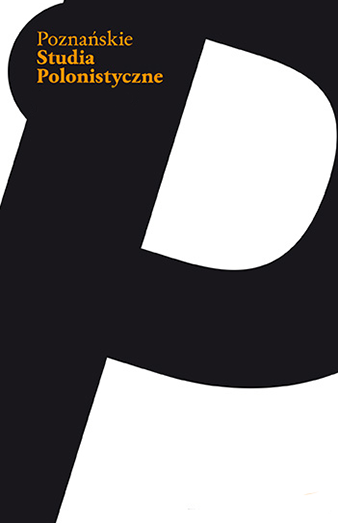Lingua Erazma z Rotterdamu między fizjologią, filozofią i filologią
“Lingua” by Erasmus of Rotterdam. Between physiology, philosophy and philology
Author(s): Justyna Dąbkowska-KujkoSubject(s): 16th Century, Philology, Translation Studies
Published by: Wydawnictwo Poznańskie Studia Polonistyczne
Keywords: tongue; word; language and speech; diatribe; medicine; anatomy; cure; poison; illness; physiology; philosophy; philology;
Summary/Abstract: The article entitled “Lingua by Erasmus of Rotterdam – between physiology, philosophy and philology” is devoted to the treatise “Lingua, Sive, De Linguae usu atque abusu Liber utillissimus” which was originally published in 1525, while in an anonymous Old Polish translation it first appeared in 1542. It represents one of the most important voices in then Europe on the role of language in international social communication. In it issues related to the ethics of language, seen from a theological, philosophical and philological perspective, were taken up by the Rotterdammer, using references to medical and natural sciences. The combination of these areas of knowledge has become the subject of in-depth analysis in the article. The term „tongue”, which is equivocal in meaning, is understood in the treatise as the organ for as well as the process of speaking. As a consequence, the „physiology of language” presented in the Lingua, resulting in an extended lesson in anatomy, eventually moves the discourse into the area of reflection on the importance and role of word both in interpersonal association and in the Christian „galaxy” – the humanitas, as a factor for its integration and guarantor of peace.
Journal: Poznańskie Studia Polonistyczne. Seria Literacka
- Issue Year: 2017
- Issue No: 31
- Page Range: 129-146
- Page Count: 18
- Language: Polish

